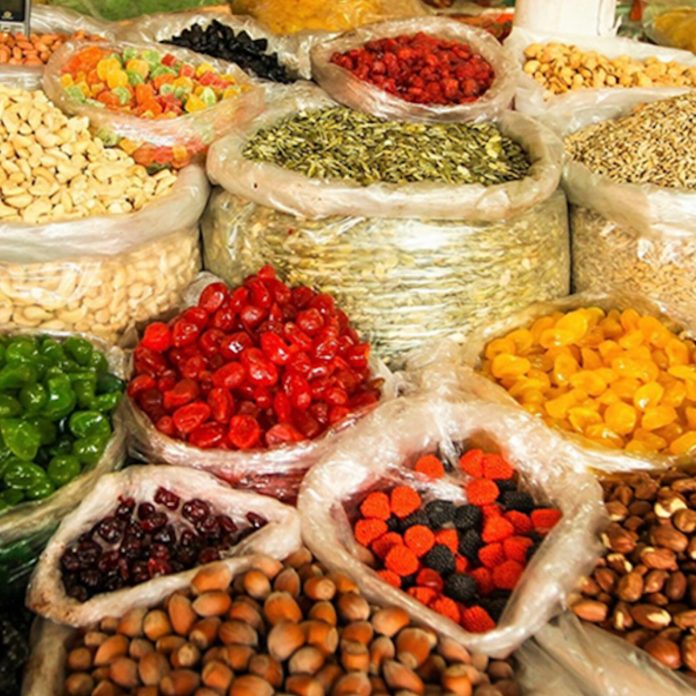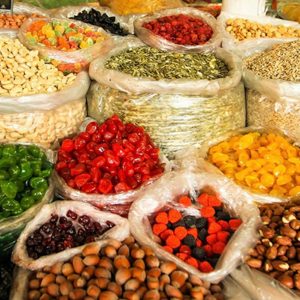Food
The ongoing excruciating hunger in the land may take a turn for the worst and may spiral into hunger pandemic if urgent steps are not taken by the government at the centre and at the various sub-nationals to stem the tide.
This spectre looms as food insecurity is becoming a nightmare turning into reality as agricultural production in the Middle Belt region of Benue, Nasarawa and Plateau has tragically plummeted as a result of avoidable, growing conflict between herders and the farming communities; which in recent weeks has worsened, thereby threatening to escalate food inflation.
It’s regrettable that for many years now farmer-herder clash has become a recurring decimal without any solution in sight due to the political class unbridled politicisation of a serious issues of hunger arising from the conflict and the glaring lack of the political will to solve this hydra head.
In its latest report on the seemingly intractable farmer-herder conflict in Nigeria, titled: “A Threat to National Stability,” SBM Intelligence, an Africa-based geographical research and strategic communications consulting firm, noted that the conflict in the Middle Belt has spread South while maintaining its grip on the country’s food basket.
Concernedly, the report put the human cost of the conflict to a staggering: over 2.2 million displaced nationwide, with 300,000 in Benue’s overcrowded camps alone.
It warned categorically that, “Nigeria’s food security hangs in the balance as the Middle Belt’s agricultural output plummets, exacerbating inflation.”
The report revealed how Nigeria’s pastoral conflict has evolved from localised grazing disputes into one of the country’s most pressing security challenges, now affecting multiple regions and threatening national stability.
It said the violence, primarily between Fulani herders and farming communities, has spread southward from its Middle Belt epicentre, intensifying in states like Edo and Ondo while maintaining its devastating grip on Benue, Nasarawa and Plateau.
“The crisis stems from complex interlocking factors. Climate change and desertification in northern regions have diminished grazing lands, forcing pastoralists south into Nigeria’s agricultural heartland. This migration, coupled with population growth and uneven development, has fuelled competition for dwindling resources,” SBM pointed out.
It noted that the conflict’s nature has transformed dramatically since 2010, with traditional dispute-resolution mechanisms collapsing as sophisticated weaponry flooded the region.
“What were once minor clashes mediated with sticks now involve AK-47s and military-grade firearms, enabling systematic violence, including crop destruction and land appropriation.
“The human cost is staggering: over 2.2 million displaced nationwide, with 300,000 in Benue’s overcrowded camps alone. Nigeria’s food security hangs in the balance as the Middle Belt’s agricultural output plummets, exacerbating inflation. The crisis has also metastasised, merging with banditry and kidnapping networks,” the report stated.
Disturbingly, it maintained that complicity within affected communities – including alleged intelligence-sharing with attackers for financial gain – has complicated counter-violence efforts.
It observed that government responses have proven inadequate, pointing out that the National Livestock Transformation Plan (NLTP) remains poorly implemented, while anti-open grazing laws face enforcement challenges and political resistance.
The report also posited that security operations provide temporary relief but fail to address root causes, adding that the conflict’s ethnic and religious politicisation, including accusations of “Fulanisation”, has further entrenched divisions.
The SBM Intelligence recommended that a sustainable resolution demands a multifaceted approach, suggesting urgent land reforms to clarify grazing rights, robust arms control measures, climate adaptation programmes, and depoliticised dialogue.
With attacks spreading southward and displacement figures rising yearly, it warned that Nigeria faces a narrowing window to prevent this pastoral conflict from becoming an irreversible national catastrophe.
“The time for coordinated action is now – further delay only deepens the crisis, threatening Nigeria’s unity, food security, and democratic fabric,” it concluded.
The future of food insecurity is grim, given that governments at all levels have not shown enough courage because of political correctness, leading to loss of lives and property and attendant food insecurity.
In Ondo state for instance, the government initially wanted to play down the gravity of the danger when youth began to protest incessant kidnappings and killing of farmers in their farms by herders until the students began to block roads in protest on Wednesday.
It was in reaction to incessant kidnappings and killing in Edo state which has made it difficult for farmers to access their farms that led to mistaken identity killings of what was alleged to be 16 Northern hunters in Uromi last week. Although, locals insisted those killed were terrorist herders, disputing government’s position.
The Uromi killing, the upsurge in herders’ attacks on farmers in Ondo and renewed threat to farming communities in the Middle Belt should serve as a wake up call for governments at all levels to find solution to avert hunger pandemic.


